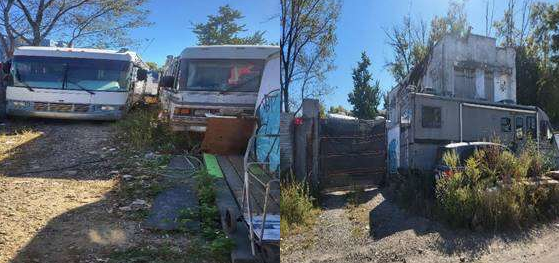By Scott Harrah
This illuminating one-woman show about the experiences of New York’s immigrant community recently opened on Broadway after a successful run two years ago at the Culture Project. Anyone who saw Sarah Jones’s performance Downtown will certainly agree that it is just as powerful on Broadway, and thankfully director Tony Taccone avoids trying to add any glitz or complicated sets and allows the simplicity of Jones’s narrative to shine.
In “Bridge & Tunnel,” Jones portrays 14 different characters of various ethnic backgrounds and genders. The setting is the fifth annual “I Am A Poet Too” reading at a Queens café where a group of multicultural poets gather to share their amusing and often touching life stories. Like Tracey Ullman, Jones has an extraordinary gift for doing a multitude of ethnic accents and portraying both male and female characters. Even before the show even opens, Jones walks out into the audience and portrays a homeless woman working as an usher, hilariously urging people to shut off their cell phones and unwrap candies or any “nasty smelling” arugula and goat cheese sandwiches before the curtain rises. She also plays the Pakistani accountant Mohammed Ali who acts as emcee for the evening, coming across as a warm amateur stand-up comic. He’s a total ham and loves to tell bad jokes, but he definitely seems to care about the poets and the tragicomic stories they have to tell.
The set is utilitarian by Broadway standards, with nothing more than a DJ booth, a few Christmas lights and a microphone. Jones relies on very few costumes, and simply puts on a different shirt, a hat or eyeglasses to let us know she’s morphing into a different character. Each has a funny but often poignant story about their experiences in America. There’s Long Island’s Lorraine Levine, an elderly Jewish lady who remembers how anti-Semitic New Jersey was in the 1950s when she was looking for a home there. Levine jokes about modern-day America, saying that we have so much freedom that “we even get to decide what happens in other people’s countries.”
Jones vividly portrays a disabled Mexican man in a wheelchair, a Dominican schoolteacher who is afraid of crowds, a Latina schoolgirl who reads a poem about why she never wants to grow up, a Chinese mother trying to deal with her daughter’s announcement that she is a lesbian, a Vietnamese poet named Bao Viet Dinh who blasts Asian stereotypes, an old Russian man from Brooklyn, a male African-American rapper, a Jordanian college professor, a hard-working Haitian woman experiencing discrimination as she tries to buy a house, and so on.
Not all of the characters or their sketches work. For example, Jones’s portrayal of an Australian woman is rather weak and the Aussie accent simply isn’t authentic, but most of the characters are on-target, and Jones is as talented a writer as she is an actress. What is truly remarkable about “Bridge & Tunnel” is the fact that Jones does not merely mimic and impersonate her characters. She brings them to life and makes audiences truly understand the hardships these individuals have faced as outsiders in America, letting the characters’ personalities and stories define them instead of relying on make-up or overdone accents and cultural stereotypes. Each character’s tale is powerful, and Jones stabs the satirical needle into the injustices of prejudice without coming across too strong or trying to deliver a preachy sermon about bias. Full of candor, insight and understanding, “Bridge & Tunnel” exposes the absurdity of bigotry in all of its ugly forms.
WWW Downtown Express





































